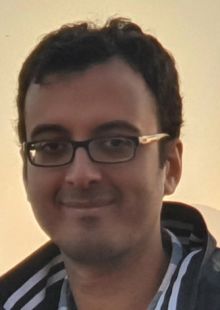MMAE Seminar by Amirhossein Arzani: Blood Flow Dynamics near the Vessel Wall: From Flow Physics to Scientific Machine Learning
Armour College of Engineering’s Department of Mechanical, Materials, and Aerospace Engineering will welcome Amirhossein Arzani, assistant professor of mechanical engineering at Northern Arizona University, to present a lecture, “Blood Flow Dynamics near the Vessel Wall: From Flow Physics to Scientific Machine Learning.”
The virtual seminar will take place on Wednesday, September 8 from 3:30–4:30 p.m. Contact Elena Magnus at magnus@illinoistech.edu for the seminar details and a link to join.
Abstract
Major forms of cardiovascular disease localize at the vessel wall. Fluid mechanics of blood flow near the wall and derived parameters such as wall shear stress (WSS) are known to regulate vascular disease growth. In the first part of the talk, Arzani will present the complex flow physics near the vessel wall of diseased arteries. He will introduce WSS topology (manifolds) and demonstrate the complex topological patterns in WSS vector field that are often ignored. Arzani will discuss the connection between these WSS patterns and coherent structures away from the wall. Finally, the role of WSS manifolds in determining near-wall mass transport patterns will be shown. In the second part of the talk, he will present different scientific machine learning approaches to overcome limitations in experimental and computational quantification of WSS. Arzani will demonstrate how we can leverage hidden sparsity in data and use reduced-order modeling to improve blood flow data fidelity. Finally, he will present a physics-informed neural network (PINN) framework for obtaining WSS from sparse velocity measurements away from the wall and without full knowledge of the boundary conditions. Arzani will show how PINN could integrate imperfect blood flow data (sparse and outside the region of interest) with incomplete knowledge of the physics (Navier-Stokes equations without full boundary conditions) to obtain accurate results.
Biography
Amirhossein Arzani is a tenure-track assistant professor of mechanical engineering at Northern Arizona University. He obtained his master of science and Ph.D. degrees in mechanical engineering from Illinois Institute of Technology and the University of California, Berkeley, respectively. He is the director of the Cardiovascular Biomechanics Lab. His research uses different computational mechanics and data-driven techniques to study biological flows.


